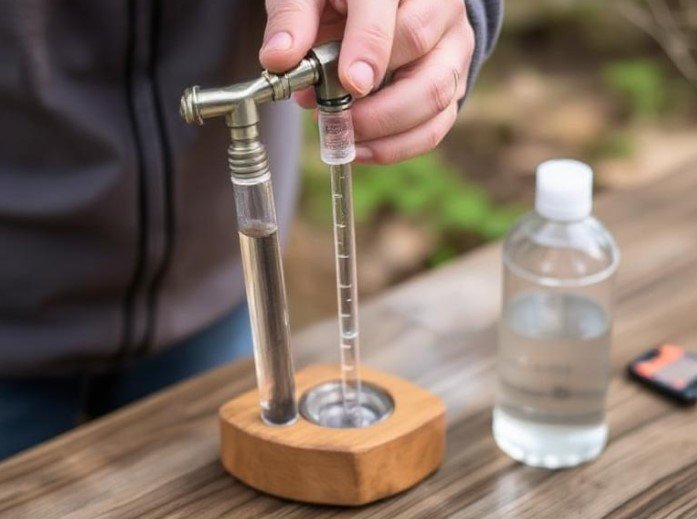Clean, safe drinking water: it’s what your family expects, and what you (hopefully) aim to provide. Yet, countless property owners carry on blissfully unaware of what’s actually flowing from their taps. Whether your water comes courtesy of the city or your trusty old well, sneaky contaminants have a knack for turning up thanks to creaky pipes, environmental mischief, or unexpected source issues. Knowing your testing options isn’t just smart – it’s how you protect the things (and people) that truly matter.
DIY Water Testing: Handy, But Not All-Seeing
Home water test kits are the Swiss Army knives of water safety: accessible, affordable, and generally good for getting you out of a basic bind. They check fundamentals like pH, chlorine, hardness, and sometimes throw in a cameo from bacteria or lead. You can find them in hardware stores or online, and some offer results so fast you’ll barely have time to fill out the warranty card.
DIY kits are perfect for impatient property owners – test when you want, how you want, all without waiting for professionals to show up. Basic strips can alert you to extremes in chlorine or pH for just a few dollars.
But (there’s always a but!), home testing kits wear some pretty thick blinders. They usually ignore a whole rogue gallery: pesticides, volatile organic compounds, those specific heavy metals with the nasty reputations. The accuracy? Let’s just say, if you botch the sample or misread the colors, your results might be closer to wishful thinking than hard science.
Professional Water Testing: A Deep Dive Without the Guesswork
Enter the professionals: the caped crusaders of water analysis. Certified labs wield cutting-edge tools that can sniff out hundreds of contaminants, even at minuscule levels. Their sample collection and testing are so meticulous, even the world’s fussiest chef would be impressed.
These experts check everything – microbes, nasty chemicals, heavy metals, pesticides, even physical properties – and wrap up the results in a report that actually makes sense, topped off with custom recommendations. If your water comes from a well, their thoroughness is doubly important (those wells can get into trouble thanks to nearby agriculture or geology).
Professional results also stand up in court, should you ever need to put your water on the legal hot seat due to contamination. Many firms will even monitor your water over time, tracking changes to keep you one step ahead of trouble. Schedule your free water test and get a better idea of your water quality in no time.
Making a Splash: Choosing the Right Approach
The savviest water guardians know you don’t have to choose just one approach – use both! Kick things off with a professional test for the full lay of the land, then let DIY kits keep tabs on any changes in between.
New home? Haven’t tested your water since the last leap year? Book a professional analysis today. Private well owners especially should put annual professional testing on their calendars, since their water is more likely to go rogue than its municipal counterpart.
Don’t play roulette with your family’s well-being. Reach out to a certified water quality specialist for a free test and finally get the peace of mind you’ve been thirsting for – you might even impress a friend or two in the process.



